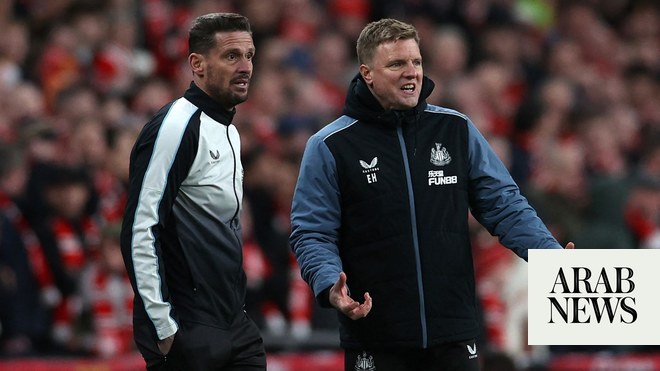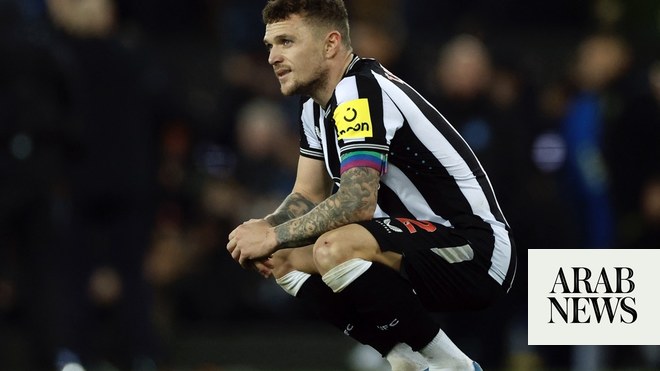
Newcastle will arrive at Tottenham on Sunday afternoon bolstered by not merely a recent warm-weather training camp in Dubai but a cultural reboot overseen by Eddie Howe.
Since Howe succeeded Steve Bruce in November there have been a series of changes on and off the pitch, with one of the most important innovations involving fortnightly “timelines” sessions.
These involve Howe and his squad gathering to hear a single player’s life story and then asking that individual questions about his background, beliefs, family and interests. “We really like to find out about players’ personal lives and their history,” said Howe.
“There’s a lot I might think I know about a person but then, when they start to talk about themselves and their childhood and certain things that might have happened in their lives, you tend to take a totally different view.
“These are things you wouldn’t normally find out in a normal conversation so I think it’s very healthy, not just for me but the rest of the squad. It can start not just new conversations but new relationships. It makes you have conversations that wouldn’t normally happen.
“We’ve had some really interesting talks and you find out a lot more about a player’s character. I won’t go into details because I don’t think it’s right but it’s a very healthy thing for everyone to do.”
Howe is a big believer that human connectivity within football clubs is about far more than just what happens on the pitch. “The culture of any organisation determines its success,” he said. “It’s all about how people interact with each other and you can stimulate that with little things to get them talking and mixing in different groups. Everything we do is about making a better working environment and stimulating respect.”
Indeed, “respect” is arguably the most important word in the Newcastle manager’s lexicon. “Respect’s a huge word,” said Howe. “There’s respect between staff and players and between players themselves.
“Top players earn huge sums but it’s about stressing that everyone’s important, staff member or player, young or old. Getting that environment right is absolutely key. If you’re not in the team you’ve got to respect those who are playing. It’s about how you behave day to day around the place. We’ve got some very good professionals here and we’ve got some great people. If you’ve got great people, you’ve got a chance of creating a great team.”
Howe believes breaking the link between players’ personal and professional lives is detrimental to the latter aim. “If a player isn’t happy off the pitch they’re never going to perform well on it,” he said. “You’ve got to know about your players’ private lives, you’ve got to know if they have kids, what makes them tick, loads of different factors.
“You’ve got to use that knowledge to try and help unhappy players find solutions to problems. One of the big areas in which we’re growing as a club is improving our infrastructure in order to try and support players.”












